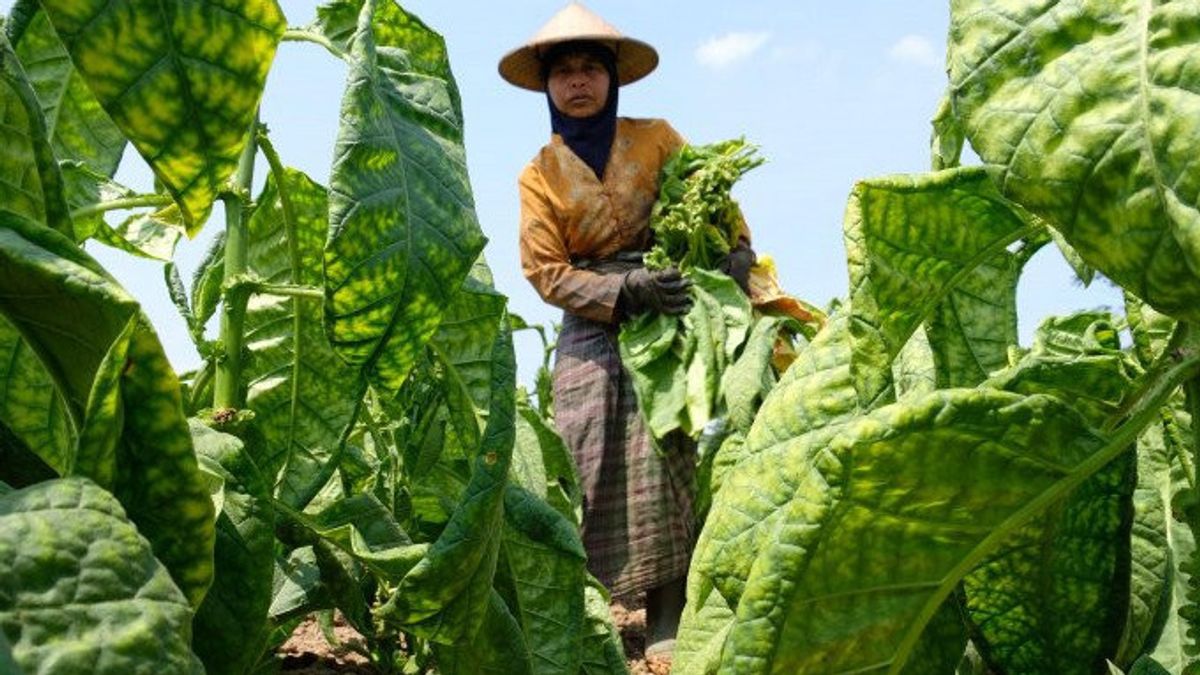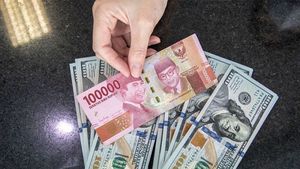JAKARTA - The government is pursuing a target to ratify the Draft Government Regulation (RPP) as the implementing rule of Law (UU) Number 17 of 2023 concerning Health. The RPP contains tobacco articles that include rules for controlling tobacco products production, sales, and sponsorship.
However, the tobacco articles at the RPP Health are considered to be able to threaten the sustainability of the domestic Tobacco Products Industry (IHT). In fact, the latest study from the Institute for Development of Economics and Finance (INDEF) concluded that the state would bear losses of tens of trillions of rupiah if these tobacco articles were ratified. Meanwhile, the benefits to be obtained from these regulations are not necessarily achievable.
Furthermore, tobacco articles at RPP Kesehatan also have an impact on other sectors that have been heavily dependent on the national tobacco industry.
INDEF's Executive Director, Tauhid Ahmad, stated, based on a study conducted by INDEF, the tobacco articles in the Health RPP will kill the Tobacco Products Industry sector. In addition, many things rely heavily on the tobacco industry sector.
The results of INDEF's calculations and analysis show that the application of tobacco articles to the Health RPP will erode state revenues. Please note, the government really needs state revenue, including to finance health programs whose sources of funds come from state revenues.
"If these ( Tobacco) articles are implemented, state revenues will decrease. Therefore, more in-depth consideration is needed when formulating this Health RPP," he said, quoted Wednesday, December 27.
Therefore, Tauhid recommends that tobacco articles be removed from the Health RPP so that they can be discussed more comprehensively.
In INDEF's presentation, the economic impacts caused by tobacco articles contained in the Health RPP are calculated by the method of modeling general balance (Computer General Equilibrium) which is equipped with primary and secondary data.
These articles are calculated to have an impact on the economy, including related to the number of packaging, product distancing and advertising restrictions. Calculation results show that economic growth will decrease by 0.53 percent if these tobacco articles are enforced.
In terms of state revenue, INDEF also concluded that the application of the tobacco article to the Health RPP would lead to a decrease in tax revenues of up to Rp52.08 trillion.
INDEF made a comparison between the health costs incurred from the tobacco industry and the economic losses caused by these articles.
The results of INDEF's calculations show that the aggregate economic losses that will be borne by the state due to the tobacco article at the Health RPP amounted to Rp103.08 trillion. Meanwhile, household spending on health due to direct and indirect cigarette consumption amounted to Rp34.1 trillion.
Researcher from the Center of Industry, Trade and Investment INDEF, Ahmad Heri Firdaus, explained that the health costs borne are not greater when compared to the economic costs borne by the state.
In addition to the economic impact, INDEF also measures how much labor is affected by these tobacco articles. At least there will be a decrease in labor by 10.08 percent in the tobacco industry sector and a decrease in labor absorption in tobacco plantations by 17.16 percent. For this reason, if the tobacco articles at the RPP Health are implemented, the Government needs to be prepared to face a large wave of unemployed, which of course will trigger economic and social consequences.
On a different occasion, the Chairman of the Association of Indonesian Tobacco Farmers (APTI) of West Nusa Tenggara (NTB), Sahminuddin, explained that PP No. 109 of 2012, which is the legacy of President Susilo Bambang Yudhoyono (SBY), has dealt a blow to the fate of tobacco farmers, and President Jokowi has the potential to repeat it again.
Sahminuddin explained, PP No. 109 of 2012 which was set in December by President SBY marked as December of Gray for tobacco farmers.
"If this Health RPP is ratified, then President Jokowi will repeat the Second December of Kelabu," he said. It is known that West Nusa Tenggara is one of the tobacco-producing centers of the virginian variant.
Meanwhile, representatives from the Indonesian Cengkeh Farmers Association (APPI), Ketut Budiman, emphasized that the voices of clove farmers are often not listened to by the Government, even though as much as 95% of clove production is absorbed by the tobacco industry, and the presence of tobacco articles in the Health RPP will have an impact on the absorption of the clove.
"Cengkeh is the first to be affected because the need for kretek cigarettes can only be met from domestic production," said Budiman.
He added, "The RPP Health market should not be too hasty to be ratified and needs to be discussed further separately," he concluded.
Despite being pursued by the target, the government through the Coordinating Ministry for Economic Affairs ensures that the Health RPP is still in the discussion stage and has not found an agreement, especially regarding the protection of addictive substances. This was conveyed by Deputy Assistant for Industrial Development Deputy V of the Ministry of Economy, Eko Harjanto in an INDEF discussion entitled "The Death of the Indonesian Tobacco Industry" in Jakarta, Wednesday, December 20.
According to him, there are several substances that are still at the government's discussion stage at the Health RPP, including the determination of levels of TAR and nicotine for tobacco products, additional materials, the number of products in packaging, sales of tobacco products, health warnings, promotional advertisements and sponsors.
As a stabilizer of the country's economy, the government should avoid regulations that provide a'surprising effect' on the tobacco industry ecosystem.
"The shock effect for the tobacco ecosystem has the potential to reduce the optimization of the upstream sector which has an impact on farmers' welfare, decreased state revenues, decreased advertising industry sectors, decreased distributor and retail sectors, decreased the tobacco MSME sector, and other impacts," said Eko.
Eko assessed that the tobacco industry is one of the strategic industrial sectors that consistently contributes significantly to the national economy through excise.
Not only that, the tobacco industry sector also plays an important role in employment, as well as welfare for tobacco farmers. Meanwhile, the supply chain of the tobacco industry sector absorbs up to 6.5 million people, ranging from tobacco farmers, clove farmers, industrial workers, retail distribution, and others.
SEE ALSO:
He also considered that the tobacco industry sector was a labor-intensive and regulatory industry. Therefore, caution is needed in regulating regulations for the sector because it has implications for the circulation of illegal cigarettes which will increase the prevalence of child smoking.
The negative impact of illegal cigarettes is not only from excise losses and reduced state revenues, but also from the social side and unfair business competition between industries.
The Coordinator of the Ministry of Agriculture's One-season Plants, Haris Darmawan, also underlined that the regulation on addictive substances can be separated from the RPP in connection with the impacts caused on the welfare of tobacco farmers.
"At least there are several impacts from RPP Kesehatan on farmers, including the decline in industrial absorption of farmers' tobacco products, loss of livelihoods for a number of farmers, tobacco farming workers, and clove farmers, and increasing unemployment from farmers, tobacco farming workers, and clove farmers," he explained.
Haris explained, basically, cigarettes cannot be lost from circulation even though farmers are prohibited from growing tobacco.
The English, Chinese, Japanese, Arabic, and French versions are automatically generated by the AI. So there may still be inaccuracies in translating, please always see Indonesian as our main language. (system supported by DigitalSiber.id)
















